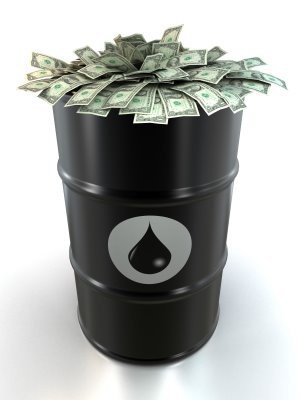The Ministry of Finance has engaged the services of an external auditor to conduct an audit into the country’s Petroleum Funds.
Commenting on a report by the Revenue Watch Institute -- an industry watchdog -- Dr. Joseph Asenso, an economist at the Ministry, said Ernst and Young has been engaged to help address concerns raised by the report in terms of public disclosure of external audits and detailed responsibilities of fund managers and staff.
Ghana’s petroleum revenue is first held in an intermediary Petroleum Holding Fund, from where it is then allocated to the Ghana National Petroleum Corporation (GNPC), the Annual Budget Funding Amount and two sovereign wealth funds known as the Ghana Petroleum Funds (GPF): the Stabilisation Fund and the Heritage Fund.
According to the report, GPF meets 13 of 16 good governance fundamentals. The report, The US$3.5 Trillion: How to Make Natural Resource Funds Work for Citizens, issued by RWI and the Vale Columbia Centre on Sustainable International Investment, said transparency is a significant gain.
But RWI said there is still room for Ghana to improve as the absence of a long-term national development plan is severely hampering the optimal utilisation of petroleum revenues.
Ghana’s Petroleum Revenue Management Act says oil revenues must be spent in line with a long-term national development plan approved by Parliament. While the law makes provision for the absence of a long-term plan, the report said having such a plan guarantees effective utilisation of the funds.
Speaking at the launch of the report in Accra, Major Daniel Ablorh-Quarcoo, Chairman of the Public Interest and Accountability Committee (PIAC) -- the body set up by statute to monitor expenditure of Ghana’s oil revenues -- said a long-term national development plan is “absolutely necessary and must not be toyed with”.
“There is need for a national development plan. Political parties may have their interim party manifestos that are converted into medium-term plans, but those are not national development plans. We want a plan that everybody buys into, so any government that comes in can be judged by how well they are able to execute the plan and not within the narrow confines of their manifesto. If we were to do that, we would move forward as a country.”
Government is currently developing its next medium-term plan after the Ghana Shared Growth and Development Agenda, which lasted from 2010 to 2013. But PIAC’s boss said the aggregation of short- to medium-term development plans does not guarantee the benefits of a long-term plan.
The report also said the lack of guaranteed funding for PIAC compromises its ability to monitor revenues accrued from oil.
“It is a serious problem and it affects their ability to execute their job efficiently, and we want to encourage government to provide funding to allow PIAC execute their mandate effectively and independently,” said Andrew Bauer-Gador, an economic analyst at Revenue Watch Institute.
PIAC, according to Mr. Ablorh-Quarcoo, is being funded for now at the discretion of the Finance Ministry, awaiting amendment of the petroleum revenue management law to guarantee it a regular source of funding. The report also urged the country to formulate stronger rules to determine how much money goes to the Ghana National Petroleum Corporation, and said PIAC’s oversight of GNPC receipts and spending must be strengthened.
“It is crucial for PIAC and Parliament to be able to monitor the activities of GNPC as it continues to expand its mandate. One of the things you would want to avoid is a situation where it expands and it starts sucking oil revenue, which hitherto would have gone into infrastructure development,” Mr. Bauer-Gador said.
Business News of Friday, 25 April 2014
Source: B&FT













